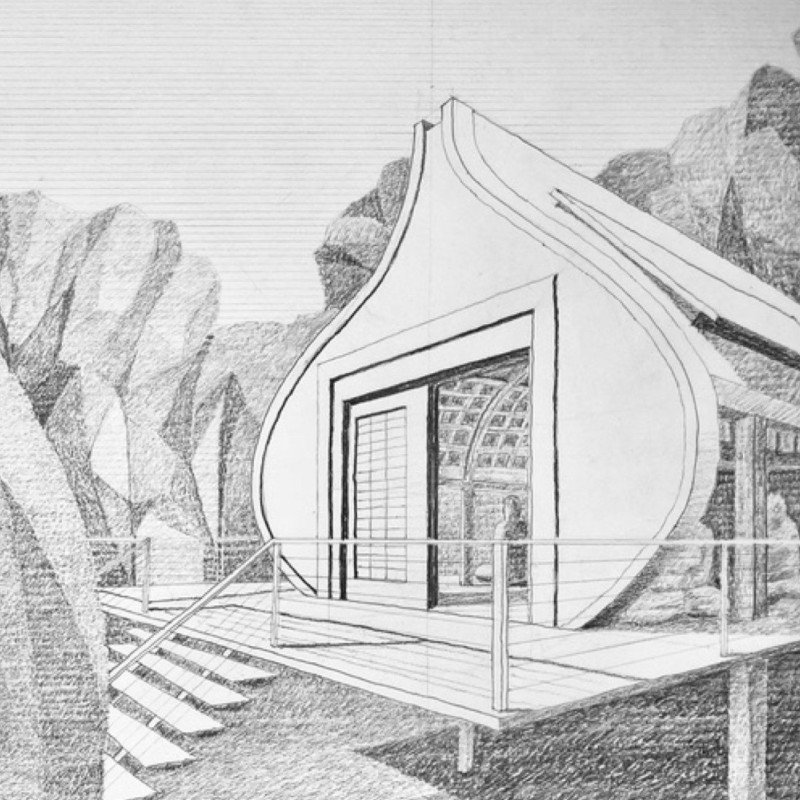5 key facts about this project
The Kawakawa Meditation Cabin sits in the peaceful surroundings of Earth Energies Sanctuary in New Zealand. Designed as a retreat, the cabin encourages users to reflect and connect with nature. The overall design concept focuses on harmony between the structure and the environment, inviting people to engage mentally and spiritually with their surroundings. Elevated on a frame made from native timber, it minimizes disturbance to the ecosystem while offering a serene escape.
Elevated Structure
The cabin’s design lifts it above ground level, allowing integration with the local landscape. By raising the building, it respects the existing plants and animals, reducing any impact on their habitat. The height of the structure also opens up views of the natural scenery and encourages interaction with the outdoors. This elevation promotes natural ventilation, helping to create a comfortable space inside.
Natural Light and Airflow
A key feature of the cabin is its ability to bring in light and air. The lower walls can be lifted, allowing fresh air and sunlight to flood the interior. This design choice connects occupants directly to the outside world and enhances the experience of being in nature. The mixture of surrounding sounds and smells adds to the sensory richness of the mediation space.
Sustainable Materiality
Materials used in the cabin reflect a strong commitment to sustainability. It incorporates cement board panels for structural support, vapor barriers, and plywood for insulation. Local timber is chosen for the frame, which contributes to carbon capture as it grows. In addition, solar panels are featured to support the structure’s energy needs, highlighting a focus on renewable resources to run the cabin efficiently.
A wood stove provides warmth during colder months, completing the energy-efficient design. This attention to practical detail ensures the cabin remains a comfortable place for reflection. Every element is intended to help users engage fully with their surroundings and to find peace in their quiet moments.





















































